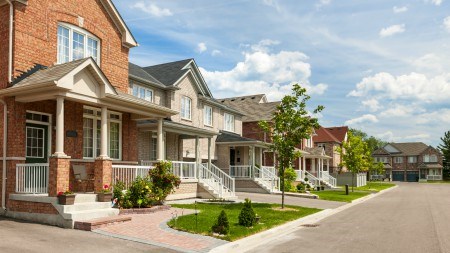Property that is closer to metro areas or public transport is certainly more expensive than property further afield, but not having to commute has major benefits.
We might be stating the obvious when we note that property is more expensive when it's situated close to the business hub of a town or city, but there are two burning questions which have to be asked: in the long run, is it cheaper to live close to your workplace; and is it only about the money or should you be considering your health when deciding where to live?
Much has been made of the fact that property situated close to Gautrain stations is more expensive than that which isn't near a public transport route. Likewise, properties that are within walking distance of work generally cost more than do those in outlying areas. In the old days properties in the more built up areas appealed to the younger generation who would gladly live amidst all the action before they settled down and moved to the suburbs. These days however, perhaps in part due to security concerns, more and more families are opting to stay out of suburbia and remain in areas that aren't only closer to the work place, but are also close to good shopping facilities.
Although South Africa cannot really compete with Europe as far as transport facilities go, a growing number of our cities have improved their public transport offerings greatly over the past couple of years and it's now easier to get around metro centres than ever before. We may not have reached the stage where we are prepared to forgo our cars completely, but there are many instances where South Africans only use their vehicles for recreational purposes.
Let's face it, life would be a lot cheaper if we didn't have to fill our vehicles with fuel, replace the tyres or fork out for the annual service. Obviously, the more you have to drive, the harder all of the above will be on your pocket but surprisingly, it's not only the cost of the commute that's impacting on people's lives. Forbes ran an article a couple of years ago which addressed the stresses linked to commuting. It quoted a study conducted by Canada’s University of Waterloo which found that there was a direct link between the amount of time spent commuting and personal well-being. The study concluded that people with the longest commutes had the lowest overall satisfaction with life.
Interestingly, the study also found that time spent commuting is linked to a sense of time pressure and that those who spend the most time on the road experience higher levels of stress because they constantly feel hurried. Many spend their time on the road worrying about the work or activities they are missing. Unfortunately it's also been shown that commuting times impact negatively on physical and mental health. A similar study undertaken in Sweden in 2011 linked long commutes with higher illness-related work absences, regardless of whether the commute was made using their own or public transportation.
The traffic on South Africa’s roads has become, for want of a better word, insane over the past few years. It's nothing to hear that it can take over an hour to drive a few kilometres during rush hour in an urban area or take hour upon hour to travel from one side of a city to the other. Of course, some trips are unavoidable, but it's probably going to make a great deal of financial sense to buy a home close to your workplace as opposed to something further afield. Yes, you may change jobs and in the worst-case scenario will have to move closer to your new workplace. However, property prices are based on demand and you will in all likelihood make a decent profit on the sale, allowing you to buy an equivalent - or better – property in a more proximate location. Having more time to spend with your family is going to impact on your life and it can only be a win-win situation if you manage to save some of your hard-earned cash in the process.





